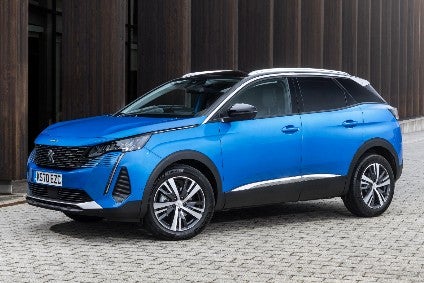
October was a challenging month for Europe’s automotive industry, as total registrations decreased by 30% to 790,652 units caused by the continued impact of shortages of new cars at dealerships.
Felipe Munoz, global analyst at JATO Dynamics, said: “The shortage of semiconductors is proving to be as severe as the COVID lockdowns of last year. We have seen factories shut down across the continent and, at present, the industry is struggling to find a solution to the supply chain crisis.”

Discover B2B Marketing That Performs
Combine business intelligence and editorial excellence to reach engaged professionals across 36 leading media platforms.
Nonetheless, year to date total volume for Europe’s 26 markets was higher than in 2020, up by 2.6% to 9.85m units but the rise in September was 7%.
The shortages are also having a direct impact on sales leadership across the European market. Last month was the second time, this century, that Volkswagen Group fell out of the leadership position for monthly registrations ranking by OEM. This was the first time since its formation earlier this year, that Stellantis had outsold the German manufacturer.
Last month, VW recorded a 42% decline in volume, with double digit drops in all countries except Ireland. Its compact and midsize cars were the most severely affected segments.
Munoz added: “Carmakers are being forced to prioritise their best selling segments, meaning that the few available semiconductors are being used solely to produce SUVs and EVs.”
The market share for SUVs jumped from 40.7% in October 2020 to a new monthly record of 46.8% last month. Unlike the traditional segments, demand for SUVs has continued to gain momentum as manufacturers roll out their new EV alternatives. The segment was led by VW Group, Stellantis and Hyundai Kia but only the latter posted notably strong growth at 23%, due to its latest launches. Toyota, in sixth position, also saw its volume increase by 3%.
During the month, 181,300 units of BEV and PHEV were registered, accounting for 22.9% of total market share, a new monthly record. While the EV segment continues its upward trajectory, diesel vehicles are struggling to gain traction in Europe, with market share dropping to just 19%.
Munoz said: “As we saw during the pandemic, the current crisis has proved to be more of an opportunity than a threat to the developing EV market. COP 26 marked a significant turning point for the industry as 24 countries and 11 OEMs committed to no longer producing ICE vehicles by 2040, and so the shift towards EVs will only accelerate further in the coming years.”
As a consequence of the crisis, there was considerable change in the rankings by model. The Peugeot 2008 secured the top spot for the first time since its introduction in 2013. Stellantis saw five of its models in the top 10, followed by the Renault group with two models, and VW, Ford and Hyundai with one model each.
The Hyundai Tucson again performed well, up by 59% thanks to the new generation.
Strong results were also posted by the VW T-Cross +10%; BMW X3 +74%; Kia Sportage and Ceed, +23% and +26% respectively; Mitsubishi Space Star +45%; Ford Ecosport +36%; Tesla Model 3 +236%; Porsche Macan +38%; BMW 4-Series +31%; VW Arteon +103%; Porsche Taycan +41%; Lexus UX +28%.
Among the latest launches, the Opel/Vauxhall Mokka secured a place in the SUV top 10; the C4 became Citroen’s second best-selling vehicle; Renault’s Arkana outsold the Megane and Kadjar, and the Dacia Spring was the third best-selling BEV, behind the Renault Zoe and the Volkswagen ID.3.






